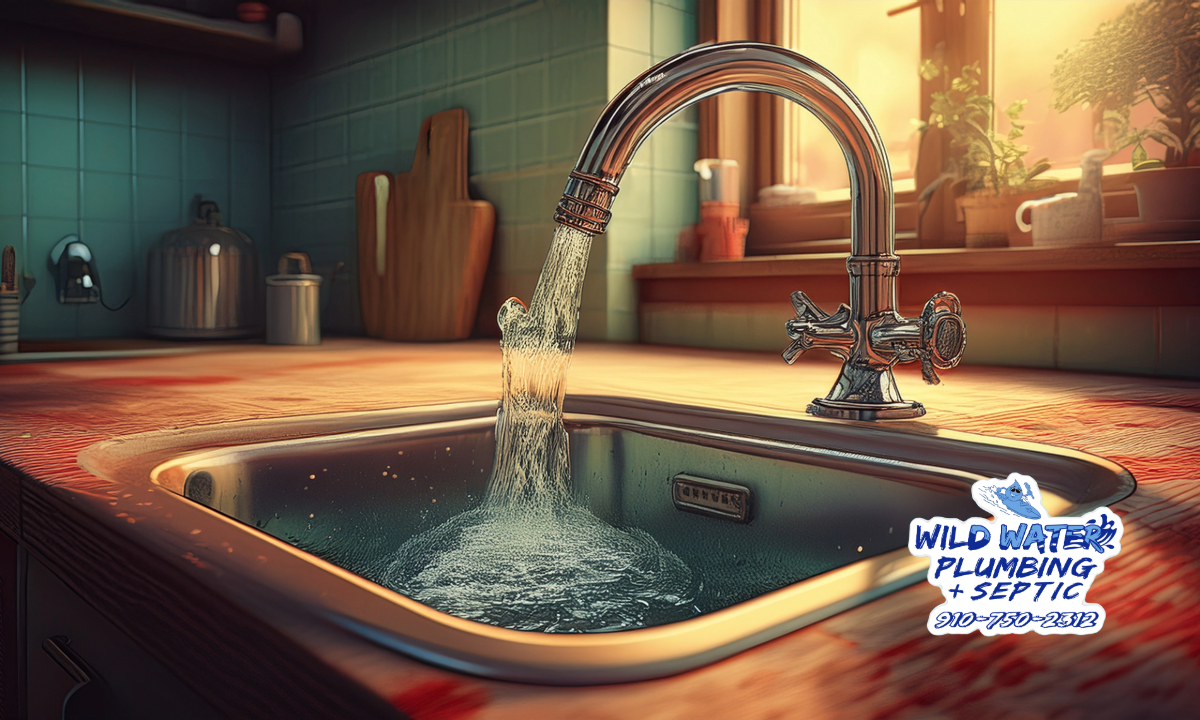Hi, I am Justin Wilder, owner of Wild Water Plumbing and Septic, and a U.S. Navy Veteran.
If you live in Jacksonville, you probably already know how fast things change once summer hits.
Traffic gets heavier, the grills come out, the kids are running through sprinklers, and water usage jumps way up.
What many homeowners do not realize is that this seasonal spike puts severe pressure on your well pump.
Every summer, I get more emergency calls from Jacksonville than anywhere else in Onslow County because well pumps here simply work overtime.
Today I want to walk you through why well pumps burn out faster in the summer, especially around Jacksonville, and what you can do to protect your system before it leaves your family with no water during the hottest days of the year.
Jacksonville Summers Push Your Well Pump To Its Limits
Jacksonville is a busy town year-round, but once the heat kicks in around late May, water usage skyrockets. Homes near Western Boulevard, Piney Green, and the neighborhoods stretching toward Camp Lejeune all experience heavy seasonal demand.
Families are filling pools, running multiple showers, watering gardens, washing cars, and running dishwashers more often.
That demand creates a steady strain on your well pump.
Water Usage Spikes Cause Constant Cycling
One of the most significant problems I see in Jacksonville homes is constant well pump cycling.
That means the pump turns on and off repeatedly, sometimes dozens of times in a short period.
Why Constant Cycling Burns Out Your Pump
Every time a pump kicks on, it uses a surge of power
Every start creates heat inside the motor windings
That heat builds up faster in summer
Over time, the motor gets weaker until it finally fails
Cycling happens most often when the pressure tank is too small, failing, or when water usage is nonstop throughout the day.
This is one of the top causes of pump burnout in Jacksonville neighborhoods where families run multiple showers and outdoor hoses at the same time.
Jacksonville’s Sandy Soil Plays A Bigger Role Than Most Homeowners Realize
The soil across Jacksonville is sandy and drains fast. That means groundwater levels can drop quickly during dry stretches.
When that happens, your well pump has to work harder to pull up water.
When Water Levels Drop, the Pump Overheats
If the water level falls below the pump intake, your well pump pulls air instead of water.
This is called running dry, and it is one of the fastest ways to burn a pump out.
Dry Running Creates:
Heat buildup
Friction inside the motor
Damage to internal seals
Cracked impellers
Total pump failure
Jacksonville neighborhoods like Blue Creek, Southwest, and areas near Gum Branch Road tend to experience sudden groundwater drops in late summer.
I get a flood of calls from homeowners who lost water pressure almost overnight.
Hot Weather Makes Pump Motors Run Hotter Than Normal
Heat is the number one enemy of electric motors, and your well pump is no exception.
Jacksonville summers get humid and hot, especially during late afternoon peaks.
Why Heat Speeds Up Well Pump Failure
The pump motor already works harder when demand is high. Add outdoor temperatures in the upper 90s, and that heat has nowhere to go.
If your pump is older, voltage drops from overloaded electrical panels make the motor run even hotter.
If your well cap is exposed to direct sunlight, the internal wiring heats up and breaks down more quickly.
If you live near Western Boulevard Extension or Piney Green, where open yards get full sun, this can be a significant problem.
How Heavy Laundry and Shower Use Impacts Jacksonville Families With Children
Jacksonville has a huge number of young families and military households.
I see the same pattern every year.
Multiple Back to Back Uses Kill Pumps Fast
Three or four showers in the morning
Dishwasher after breakfast
Laundry cycles running back to back
Kids playing in sprinklers
A hose filling a small backyard pool
By noon, the pump has already run most of the morning without a break.
When Pumps Cannot Cool Down
The motor overheats
Internal components melt or warp
The pump loses efficiency
Then you lose water entirely
I have had to replace pumps that were only a few years old because household demand exceeded what the system was originally designed for.
How To Protect Your Jacksonville Well Pump Before It Burns Out
You can avoid most summer pump failures in Jacksonville with a few smart steps.
Upgrade Your Pressure Tank
A larger tank reduces pump cycling.
This alone can double your pump lifespan.
Schedule A Mid-Summer Well Inspection
I check pressure levels
I make sure the pump is not short cycling
I inspect wiring that often gets heat damaged
I check water levels in wells prone to summer drop
Add A Pump Saver Device
This immediately shuts down the pump if the well runs dry, preventing burnouts.
Clear Sand And Sediment
Jacksonville wells pull a lot of sediment in summer.
Sediment wears out pump impellers and motors.
When You Need Help, I Am Right Here In Jacksonville
As a U.S. Navy Veteran and the owner of Wild Water Plumbing and Septic, I take pride in helping Jacksonville families stay safe, comfortable, and prepared.
If you notice low pressure, short cycling, or your pump running longer than usual this summer, reach out right away.
Catching the problem early can save your pump and your wallet.


